Questionabout a year and a half ago our family adopted a cockatiel from my aunt whose birds had eggs.. they laid four and offered us one of our choice(moe).. we chose one that seemed friendly to raise and she has been a wonderful addition to our family and loves following our kids around like she's their mom..hehe... my question however is this: My aunt had recently contacted us if we would like to have Moes sibling(male) as the family he went to was unable to care for him. He is tame and very friendly, like our female is. We offered to take him as we would love to have another bird, but I am wondering what to be concerned about in the way of keeping them from mating. We let our bird wonder freely thru the house when we're home and don't want to have to cage either permanantly. They both will have seperate cages. Any advice? thanks in advance
laura
AnswerHello Laura,
Since they will be housed separate cages you shouldn't have to worry too much. It will be important that you learn to understand and control a bird's breeding hormones.
A bird's breeding hormones and reproductive organs are activated by the environment. Therefore you can have a lot of control over these hormones.
Here are steps you can take to prevent the breeding hormones from becoming active.
1. An abundance of light is the strongest trigger. Make sure to provide 10-12 hours of uninterrupted dark sleep time every night. Increase it to 12-14 hours if needed.
2. Don't provide anything that would resemble a nest or be a perceived nest to your birds as they wonder the house. This is where you will probably need to establish some bird boundaries. Instead of allowing your birds to have free reign, provide bird safe play gyms for them to play on. A house is full of nice cozy nest locations.
3. Maintain a flock mate relationship with each of your birds rather than a breeding type relationship. This means you restrict all physical contact to head scritches only. For birds, any contact with the back, tail, or other petting is for mating only.
4. Provide a healthy daily diet of pellets, fresh fruits and veggies, and very limited seed. An all seed diet not only results in eventual serious health problems, but the high fat content triggers breeding hormones.
5. Have focused fun training sessions with each bird. This will challenge their minds and keep them busy (something to do other than breed.)
Enjoy your new friend!
Jennifer
www.feathersandscales.com

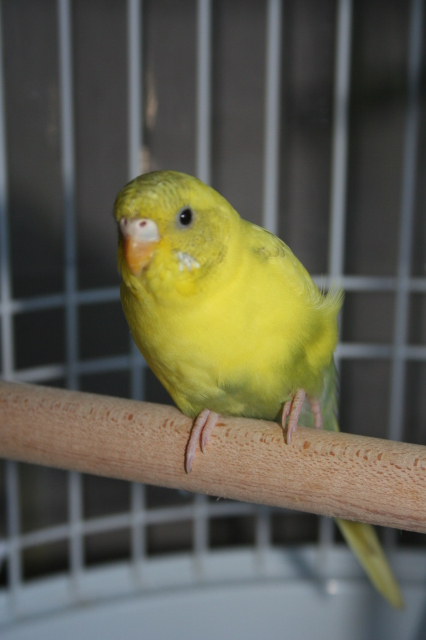 Budgie has broken foot?
Question
Maggies foot
Hi there! I got a baby budgie a f
Budgie has broken foot?
Question
Maggies foot
Hi there! I got a baby budgie a f
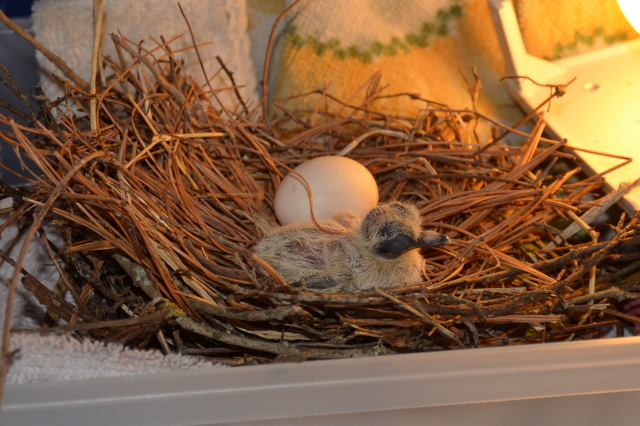 mourning dove
Question
baby mourning dove
Hello,
My boys found a baby
mourning dove
Question
baby mourning dove
Hello,
My boys found a baby
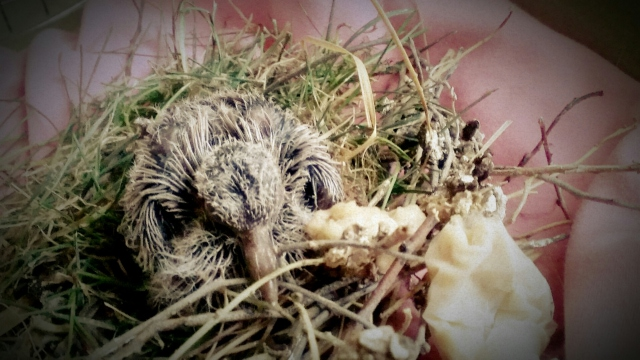 Baby Dove Care
Question
Baby Bird 1 Baby Bird 2
Hello, to
Baby Dove Care
Question
Baby Bird 1 Baby Bird 2
Hello, to
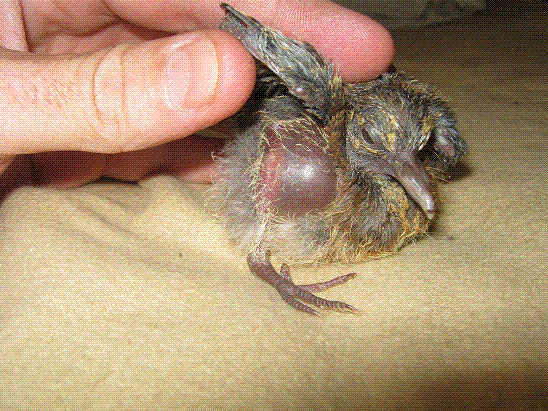 Baby Pigeon
Question
Cosmo
Hi Roger
We picked up a baby pigeon, ap
Baby Pigeon
Question
Cosmo
Hi Roger
We picked up a baby pigeon, ap
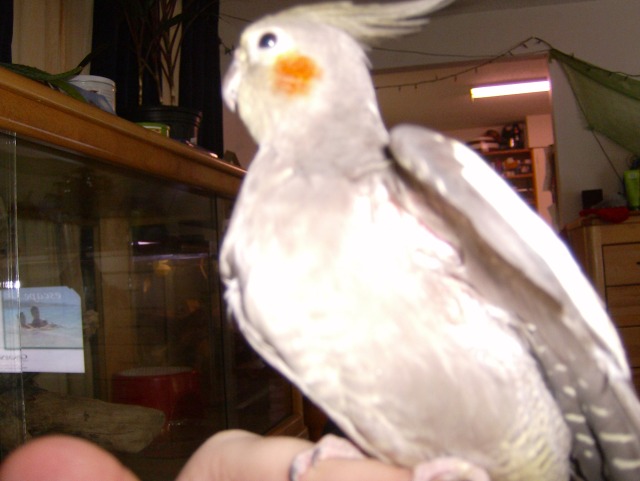 my cockitale mocha
QuestionQUESTION: I have a cokitale that will be 3 on A
my cockitale mocha
QuestionQUESTION: I have a cokitale that will be 3 on A